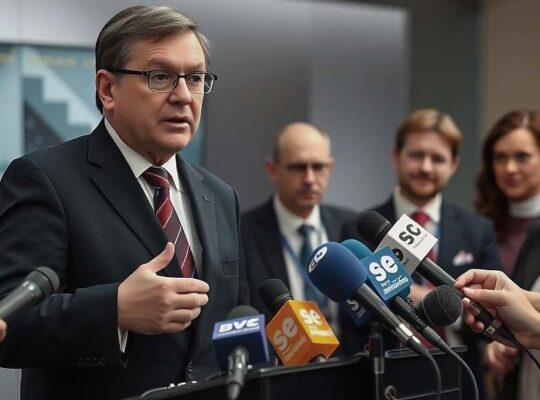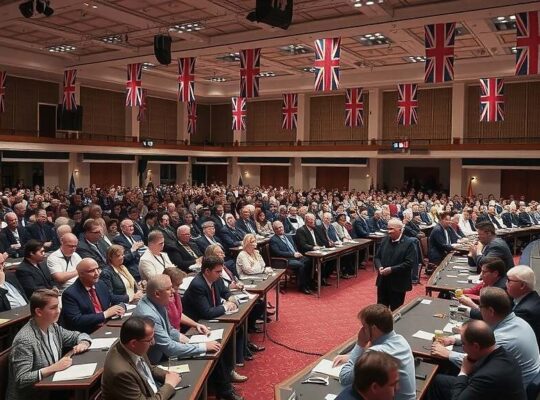Chancellor Friedrich Merz of the Christian Democratic Union (CDU) staunchly defended his government’s draft legislation maintaining the pension contribution ceiling at 48% until 2031, signaling a hardening of the CDU’s position amidst growing political scrutiny. In an interview with ARD, Merz emphasized the necessity of the measure, while also outlining tentative steps towards future pension reform.
The establishment of a dedicated pension commission was confirmed, slated to be operational later this year and expected to complete its work before the summer recess of 2026. Critically, Merz asserted that the commission’s composition would include voices representing dissenting perspectives on the current draft, a tacit acknowledgement of the significant opposition it has garnered from within and outside the Bundestag.
A key element of Merz’s strategy involves engaging in discussions with the Social Democratic Party (SPD) regarding an accompanying text to the draft legislation. This text, he stated, would formally commit to a broader pension reform beginning in 2032. While reaffirming the government’s commitment to the immediate 48% ceiling, Merz demonstrated a degree of flexibility, suggesting that an explanation of the government’s longer-term vision could be incorporated into the bill’s justification.
However, the Chancellor sharply rejected calls from the Junge Union, the CDU’s youth wing, to amend the bill. He also dismissed projections of future costs, estimated at €120 billion from 2032 onward, labeling them as unreliable. This dismissal aligns with a broader governmental effort to downplay the scale of future challenges.
A crucial aspect of the negotiation process with the SPD revolves around the establishment of a new metric for the pension system post-2032. This new benchmark aims to preemptively curb potential supplementary costs. A possible solution, according to Merz, involves decoupling pension adjustments from wage growth and linking them instead to the inflation rate – a move that would likely be highly contentious amongst labor unions.
Merz underscored that the legislation concerning the contribution ceiling represents just one facet of a more comprehensive pension package, encompassing measures such as activation allowances, early start incentives and parental benefits. The long-term effectiveness and political viability of this expansive package remain uncertain and will be subject to intense debate as the government attempts to navigate the complex landscape of German social security.












